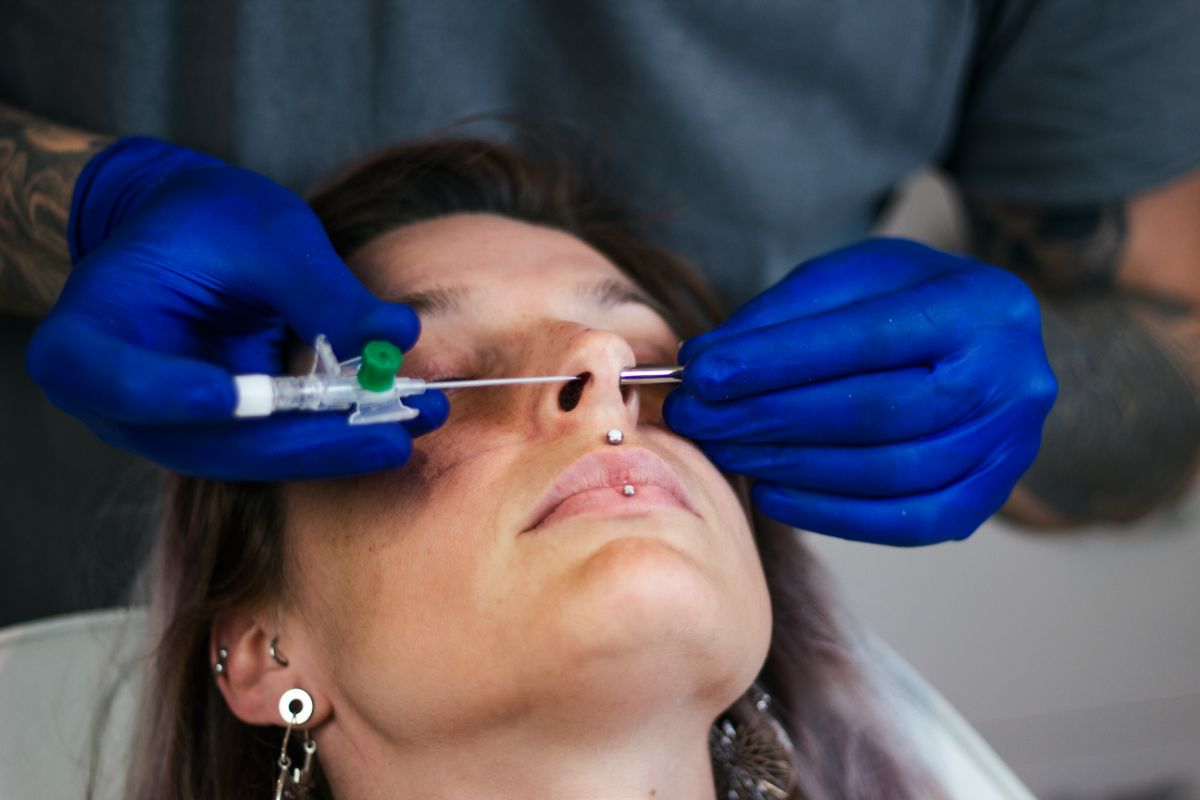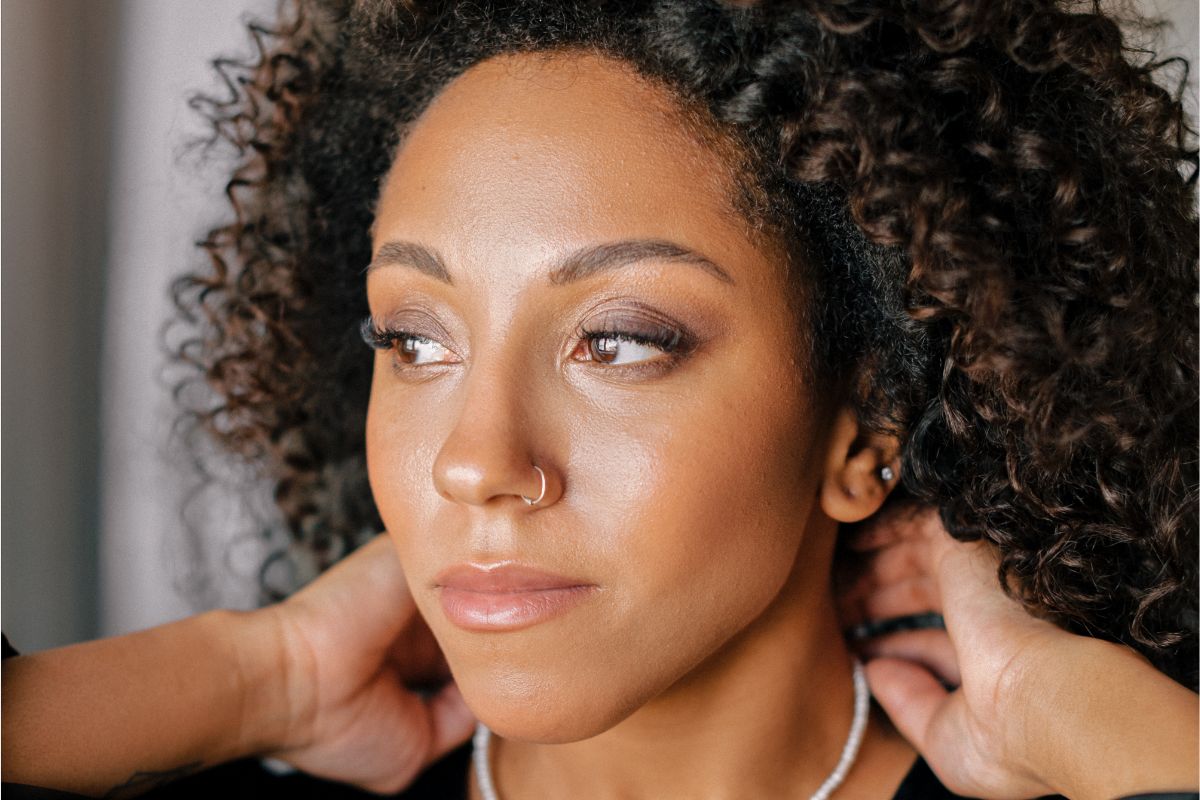Piercings are pretty straightforward, but the methods used by piercers can vary. There are two piercing methods widely used today – the gun and the needle piercing method. The method chosen will depend on the location of the piercing and the preference of the client.
Some customers prefer the gun piercing method, while others choose the needle. If the piercing is in the earlobe, the gun method is ideal. The gun method is also best if the client is a child since kids tend to move around. For children who can’t sit still, professional piercers recommend the gun method.
The big question remains, should a piercer use a gun or a needle?
Piercing guns are commonly used in the ears. It’s not as complex as the needle; therefore, very little training is needed. The critical thing to consider when piercing an earlobe with a gun is the angle of the jewelry and if the client plans to add more.
In professional piercing studios, you’ll rarely find guns. Professional piercers prefer to use the needle method. The guns are only used if the clients want to have their earlobes pierced.

Gun Piercing
The gun is reusable since the gun itself doesn’t come in contact with the client’s skin. After the procedure, the earrings are left in the ears. The only part of the gun that touches the skin is the cartridge or the plastic mount. Whether you get your earlobes pierced with a needle or a gun, the aftercare remains the same. You still need to follow the same steps until the wound has fully healed.
The Pros of Gun Piercing
- Most piercing studios use piercing guns because they’re easier to use. In addition, piercers can simply train anyone to use it. So, if you’re looking for a gun piercing studio, you’re likely to find out fast.
- Convenience is another advantage of gun piercing. You can have your ears pierced wherever and whenever. Heck, you can even get it while you’re at the mall.
- As for the cost, gun piercing is relatively cheaper compared to needle piercing. You can get your ears pierced at a low price at the mall compared to a professional piercing studio.
- One of the most excellent perks of gun piercings is it delivers fast results. After pulling the trigger, voila, you get an instant piercing.
The Cons of Gun Piercing
- Gun piercing can cause tissue trauma. This usually happens if the gun has a blunt stud and the stud is forced through your skin. It will forcibly rip your tissues apart.
- When the piercing gun has a blunt stud, and it goes through your skin, it’s going to be bloody that not even wipes and alcohol can clean up all the mess.
- Mall employees typically go through a two-week course to learn how to operate the gun. Unfortunately, two weeks are very short of developing their skills and techniques, so there’s a tendency that they won’t be able to get it right.
- Piercing guns have a high probability of harboring bacteria. And since they come in close contact with your open wound, your risk of getting infected is high.
- Since the gun applies too much pressure, causing the back of the jewelry to settle tightly, there won’t be enough room for the wound to heal properly, so swelling is expected.
- The use of a gun piercing is only best if you’re getting an earlobe piercing. If you are rooting for nose piercings or cartilage piercings, you’re better off with a needle.
- Another downside to a piercing gun is that it makes a loud sound, which can scare the children. If the child gets agitated and jerks, the stud can get stuck halfway. This will increase the risk of complications.

Needle Piercing
A safer method for doing body piercing is the needle. According to customers who have tried both gun and needle piercings, the needle is less painful than the gun. In addition, since it has a sharp endpoint, the hole created is much cleaner. The hollow design also allows the piercer to remove a tiny amount of skin, allowing enough space for the jewelry to settle and giving enough room for the fresh wound to heal.
The Pros of Needle Piercing
- Professional piercers only use one needle for every client, so it’s impossible to get contaminated from someone else’s body fluids.
- Piercing instruments are also properly sterilized and autoclaved, so they’re safe to use.
- Unlike mall employees who only get limited training, professional body piercers undergo extensive training on the techniques used, infection control, and how to promote fast wound healing.
- Believe it or not but needle piercings are less painful compared to gun piercings.
- The jewelry used in needle piercings is high-grade stainless steel, so there’s very little chance you’ll develop an allergic reaction during the healing process.
The Cons of Needle Piercing
- It’s not as convenient as gun piercings because you need to find these piercing studios. Keep in mind that not all piercing studios offer needle piercing.
- The price can be a tad more compared to booths and malls, but if you weigh the pros, you’ll get your money’s worth.
Aftercare Instructions
Regardless of your piercer uses a needle or a gun, the most important thing to consider is the aftercare. To ensure that your new piercing heals well without infection, you must diligently follow your piercer’s aftercare instructions.
Don’t handle your jewelry unless you’ve washed your hands with soap and water. It’s also essential to clean the piercing site twice a day until the wound has healed entirely. The type of cleaning product you also use matters. Never use hydrogen peroxide or alcohol on your new piercing, as this will impede the healing process. Instead, use saline solution to clean your new piercing.
If you’re looking for a safe product to clean your piercings, Dr. Piercing Aftercare can help.
At Dr. Piercing Aftercare, we’ve developed convenient medicated swabs that you can use to clean your piercings and keep infection away. We are proud of our products. They are made and tested in a cGMP compliant and FDA-registered facility in America.
We use advanced technology on our swabs for easy application. Each pack contains thirty-six medicated swabs that are proven and tested to promote your body’s natural healing process while preventing infection. Contact us today, or you can check out our website to learn more about our products.





